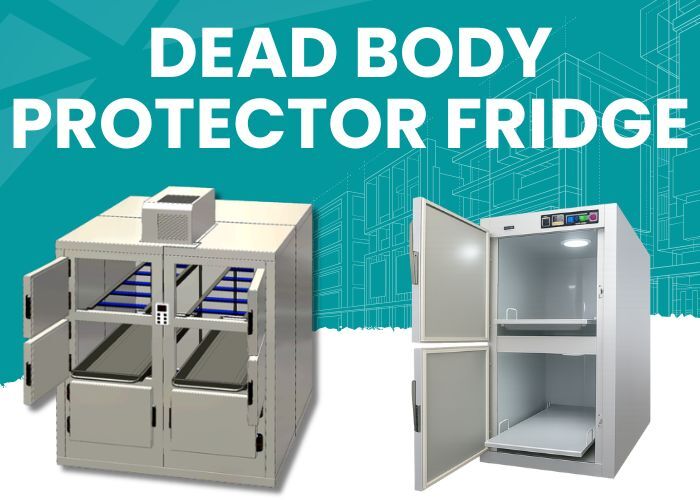When it comes to medical facilities, hospitals, or even emergency response centers, having reliable preservation equipment is not just about convenience but about maintaining dignity and scientific integrity. One of the most essential tools used worldwide for this purpose is the Dead Body Fridge. These units are specifically designed to store human remains under controlled temperature conditions, preventing decomposition for extended periods. Unlike regular refrigeration systems, these specialized machines are built to maintain consistent cooling even during long-term storage. They are heavily insulated, fitted with temperature regulators, and engineered with stainless steel interiors to ensure hygiene. Their primary role is not only in preserving the deceased but also in allowing families, medical staff, and forensic teams sufficient time to carry out rituals, procedures, and examinations respectfully.

In addition to hospitals, a Dead Body Fridge is frequently used in funeral homes, police departments, and research facilities. These institutions require precise preservation because the time between death and the final rites or investigations may vary significantly. This is where alternatives like a dead body deep freezer or a mortuary fridge come into play. While the deep freezer model offers lower temperature settings suitable for longer preservation, the mortuary fridge typically provides flexible compartments for multiple bodies, balancing space efficiency with effective cooling. The choice between these models depends largely on the application, capacity requirement, and duration for which the body must be preserved. Regardless of the model, each of these storage units is built around the same principle—delaying natural decay while maintaining dignity and hygiene standards.

The technology behind a Dead Body Fridge has evolved over the years. Modern designs prioritize energy efficiency, easy cleaning, and user-friendly controls. For example, some units come with digital temperature displays, automatic defrost systems, and backup power support in case of outages. Hospitals often opt for a dead body freezer box that is mobile, compact, and designed for individual storage, making it suitable for short-term use. On the other hand, large mortuaries prefer multi-chamber systems that can accommodate several remains simultaneously, often equipped with heavy-duty compressors for reliable operation. The use of corrosion-resistant materials like stainless steel and galvanized sheets ensures durability, which is crucial in medical and forensic environments where strict sanitation is mandatory. Such advancements demonstrate how these systems are not just mechanical refrigerators but essential medical-grade preservation units.
Ultimately, the Dead Body Fridge plays an irreplaceable role in bridging science, medicine, and humanity. It allows families the time they need to grieve and make arrangements, while also assisting medical staff and forensic teams with accuracy in their work. As the demand for such equipment grows with population and urbanization, manufacturers continue to innovate with designs that are more efficient, cost-effective, get more info and adaptable to different settings. Whether it is a dead body freezer in a rural health center, a mortuary fridge in a city hospital, or a deep freezer unit used in forensic investigations, each piece of equipment upholds the shared purpose of preservation and dignity. These machines highlight the intersection of technology and compassion, ensuring that the departed are treated with the respect they deserve while practical needs are also met.
Tags: dead body deep freezer, dead body freezer, dead body freezer box, Mortuary Fridge